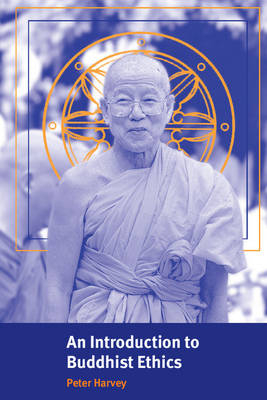
An Introduction to Buddhist Ethics
Cambridge University Press (Verlag)
978-0-521-55640-8 (ISBN)
This systematic introduction to Buddhist ethics is aimed at anyone interested in Buddhism, including students, scholars and general readers. Peter Harvey is the author of the acclaimed Introduction to Buddhism (Cambridge, 1990), and his new book is written in a clear style, assuming no prior knowledge. At the same time it develops a careful, probing analysis of the nature and practical dynamics of Buddhist ethics in both its unifying themes and in the particularities of different Buddhist traditions. The book applies Buddhist ethics to a range of issues of contemporary concern: humanity's relationship with the rest of nature; economics; war and peace; euthanasia; abortion; the status of women; and homosexuality. Professor Harvey draws on texts of the main Buddhist traditions, and on historical and contemporary accounts of the behaviour of Buddhists, to describe existing Buddhist ethics, to assess different views within it, and to extend its application into new areas.
1. Shared foundations of Buddhist ethics: sources of guidance to Buddhists; Rebirth and karma; The four noble truths; Philosophy of action; 2. Key Buddhist values; giving; Keeping the lay precepts; Monastic values; Ethics of inter-personal relationships; Loving kindness and compassion; Social ethics; 3. Mahayana emphases and adaptations: the path of the Bodhisattva; The ethics of the Bodhisattva; Skilful means and overriding precepts; Specific strands of Mahayana thought and practice; Mahayana reassessment of monasticism; 4. Attitude to and treatment of the natural world; Humanity's place in nature; Non-harming of animals; Positive regard, and help, for animals; Plants, trees and forests; Conservation and environmentalism; 5. Economic ethics; Lay economic ethics; The monastic economy; Buddhism and capitalism: Weber's 'Protestant Ethic' thesis; 'Buddhist economics'; Buddhism and economics in the modern world; 6. War and peace; Buddhist analyses of the causes of conflict; Solutions to conflict; Non-violent reflections on a violent world; The position of the soldier; Buddhist 'justifications' of and involvement in, violence; Buddhist action for peace in the modern world; 7. Suicide and euthanasia; considerations and arguments against suicide; Suicide and the precepts; Euthanasia; 8. Abortion and contraception; Embryonic life; Abortion and Buddhist principles; Contraception; Abortion in Buddhist cultures; Anti-abortion but pro-choice?: the relationship between morality and law; 9. The status of women: women in early Hinduism; the effect of Buddhism; The spiritual potential and achievement of women; Gender, rebirth and the status of women; Views on spiritual statuses unattainable by women; Images of wise and wayward women; Ascetic wariness of the opposite sex; The ordination of women; Nuns and other female religious roles in Buddhist cultures; Lay women in Buddhist texts; Lay women in Buddhist cultures; 10. Homosexuality and other forms of 'Queerness'; Sex change; Hermaphrodites; Pandakas; Homosexual acts; Homosexuality in Buddhist cultures.
| Erscheint lt. Verlag | 22.6.2000 |
|---|---|
| Reihe/Serie | Introduction to Religion |
| Zusatzinfo | 10 Halftones, unspecified |
| Verlagsort | Cambridge |
| Sprache | englisch |
| Maße | 152 x 226 mm |
| Gewicht | 730 g |
| Themenwelt | Geisteswissenschaften ► Religion / Theologie ► Buddhismus |
| ISBN-10 | 0-521-55640-6 / 0521556406 |
| ISBN-13 | 978-0-521-55640-8 / 9780521556408 |
| Zustand | Neuware |
| Haben Sie eine Frage zum Produkt? |
aus dem Bereich


